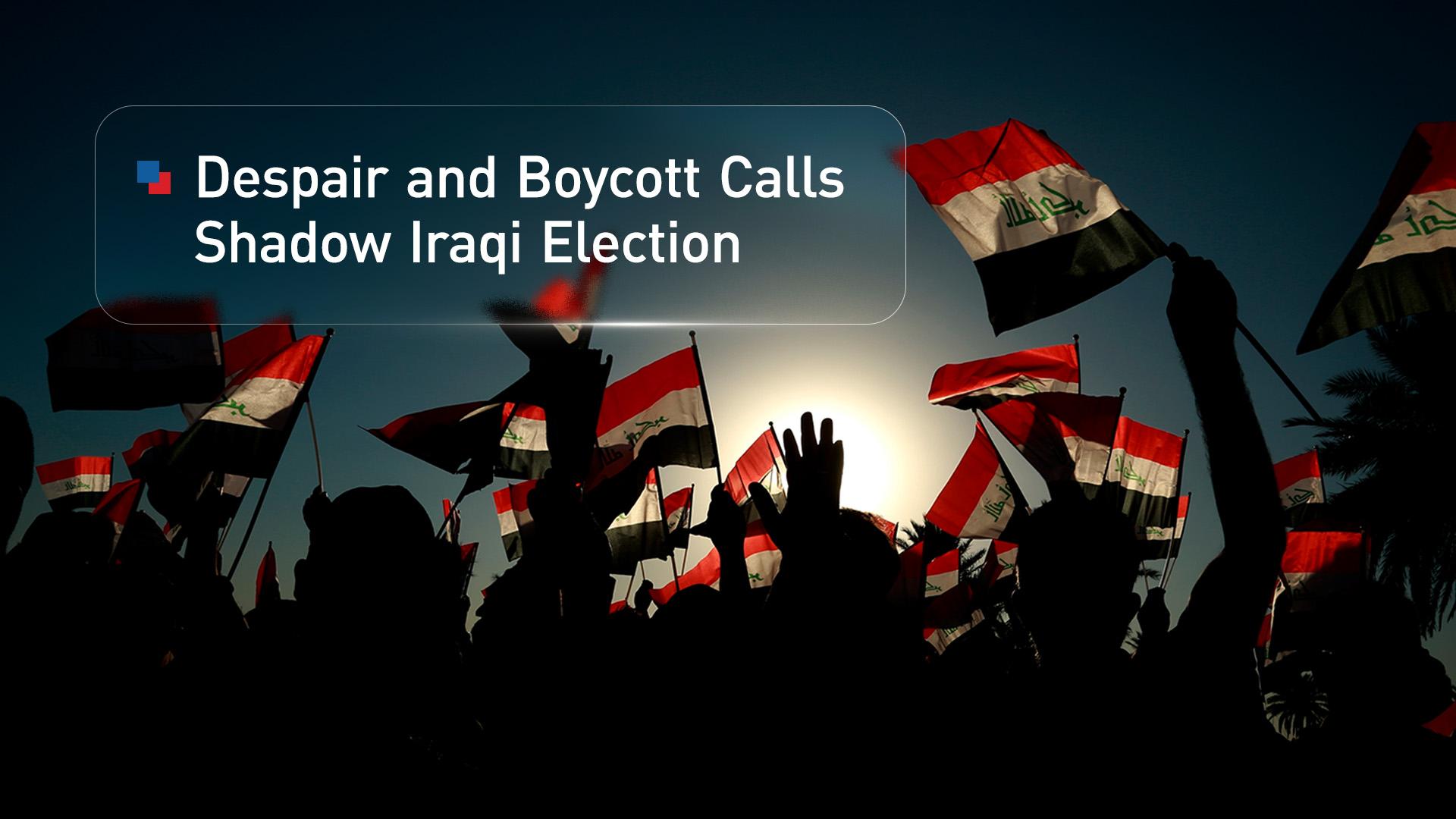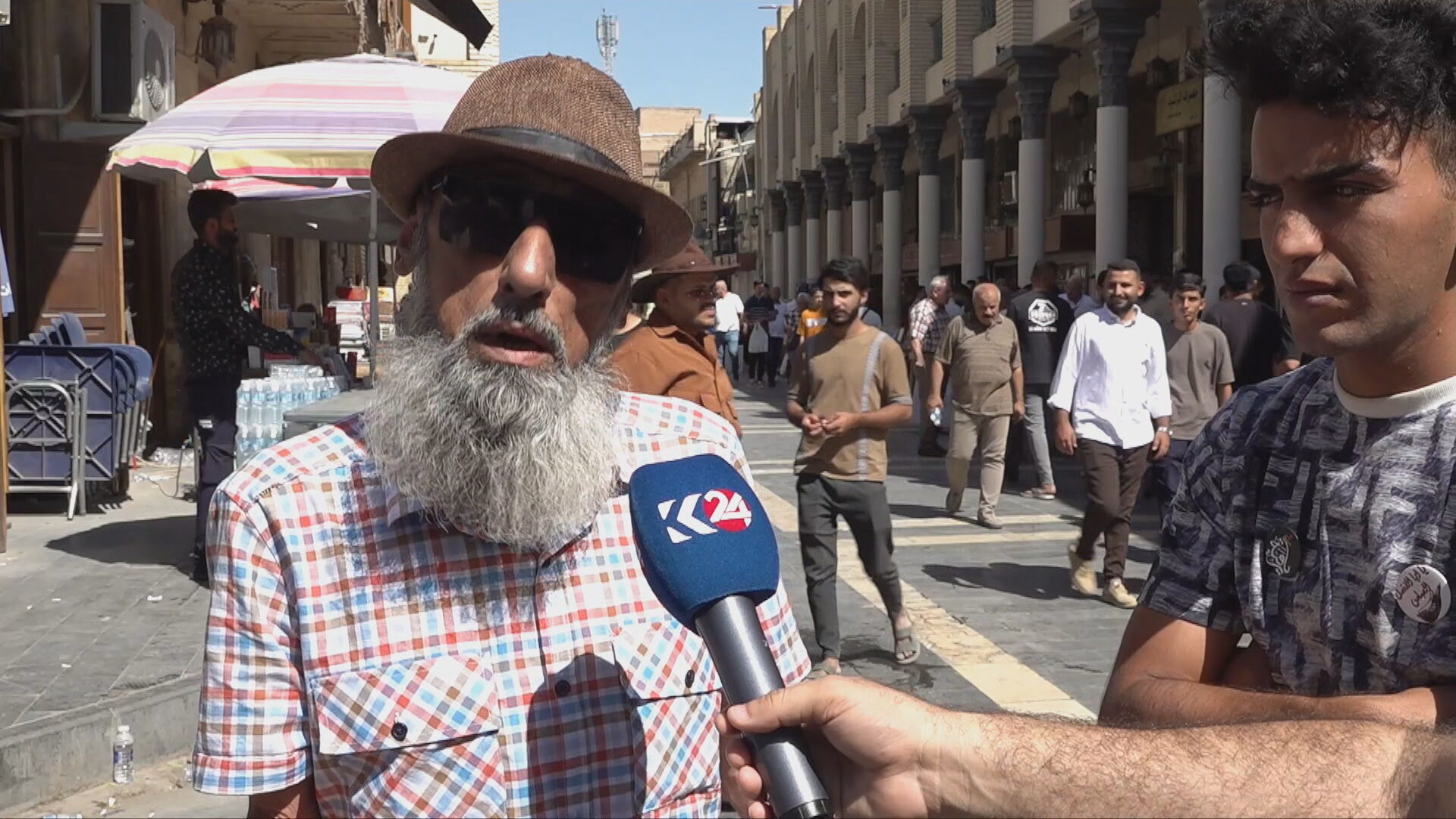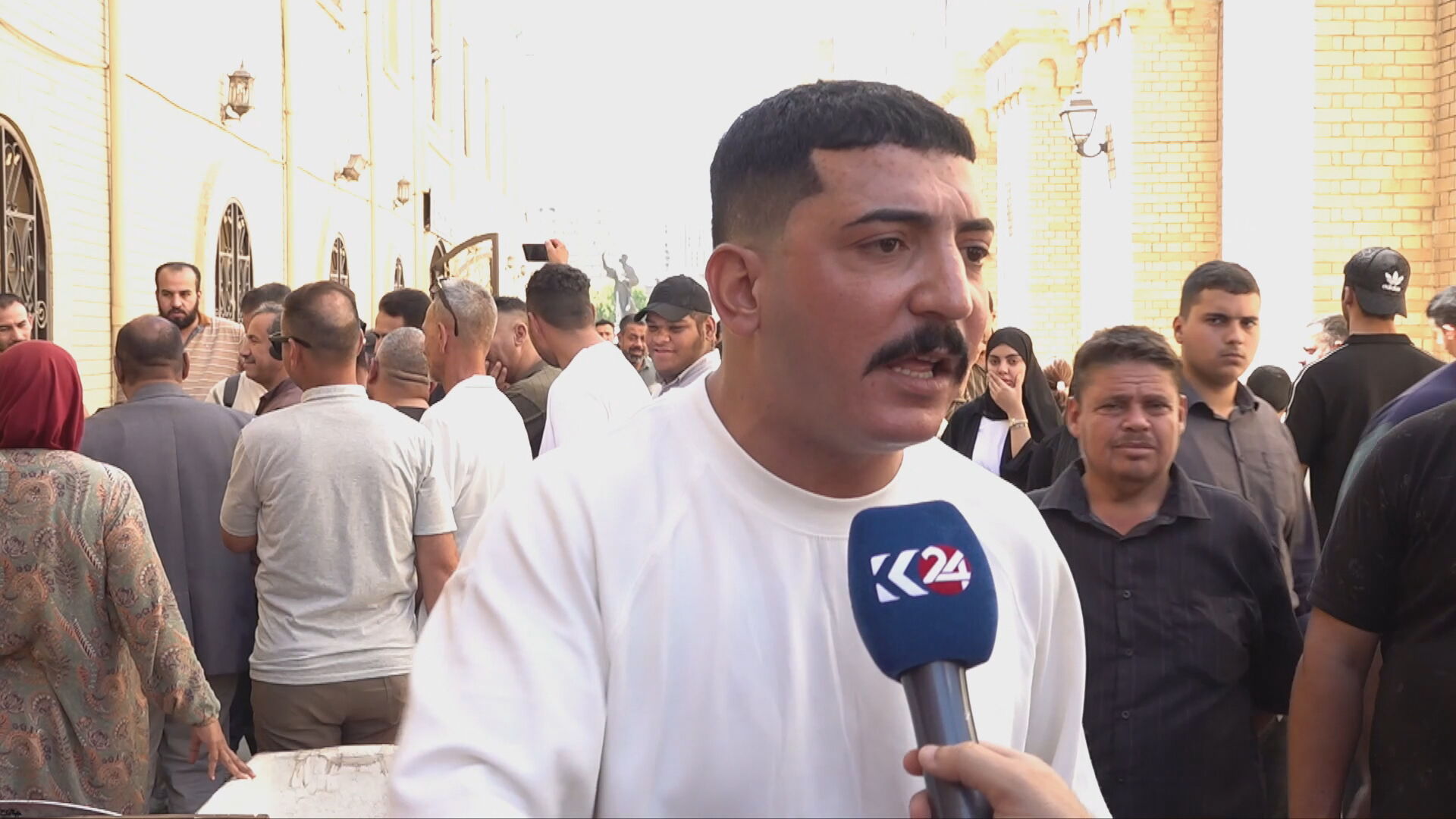'Whether We Vote or Not, They Will Be Elected Again': Despair and Boycott Calls Shadow Iraqi Election
As Iraq's election campaign begins, citizens in the capital city of Baghdad express deep distrust and plan to boycott, citing corruption and broken promises.

ERBIL (Kurdistan24) – As the official campaign for Iraq's November 11 parliamentary elections reaches a fever pitch, the nation's capital is awash in a sea of glossy posters and larger-than-life images of candidates promising "a better life" and "prosperity." Yet, beneath this vibrant veneer of democratic activity lies a deep and pervasive current of cynicism, despair, and outright rejection from a populace that has lost faith in the political process.
On the streets of Baghdad, citizens view the nearly 10 billion dinar electoral spectacle not with hope, but with suspicion and anger, with many vowing to boycott a vote they believe is already a foregone conclusion.
The epicenter of this disillusionment can be found on the historic Mutanabbi Street, long celebrated as the cultural and intellectual heart of Baghdad. Here, writers, artists, and thinkers have taken the extraordinary step of prohibiting all political campaigning, banning candidate posters from their storied walls. Their message is clear and directed not just at the political elite, but at their fellow citizens: they will not only abstain from voting themselves but are actively calling on others to join their boycott.
The reason for this profound civic disobedience is a bitter history of broken promises from previous election cycles, which has hollowed out any remaining trust in the candidates and the parties they represent.
This sentiment is not confined to the literary salons of Mutanabbi Street. Across the capital, ordinary Iraqis echo the same feelings of hopelessness.
"I will not vote, I have boycotted," Hussein Hamim, a writer, bluntly told Kurdistan24. "Whether we vote or not, they will be elected again. Because the votes have been bought for 150,000 dinars."

This allegation of vote-buying points to a deeply ingrained belief that the election is not a contest of ideas or policies, but a transaction in which power is sold to the highest bidder, rendering the ballot box meaningless.
Muattar Eragh, an activist who works with the very materials of the campaign, highlighted the glaring disconnect between the candidates' lavish spending and the daily struggles of the people.
"I tell the candidates to make their pictures smaller and give the money to the poor," he said. "Just the price of the iron used for the frames of their pictures is $10 per meter. I have made 2,000 meters for one of the candidates."

For many, these extravagant displays are not symbols of a healthy democracy but insults, a stark reminder of squandered resources in a country where basic services remain a luxury.
This crisis of faith is the culmination of years of systemic failure and endemic corruption that have left the Iraqi state unable to meet the fundamental needs of its people.
As Kurdistan24 has previously reported, the nation has been plagued by catastrophic collapses of its national electricity grid, particularly during blistering summer heatwaves that push temperatures beyond 50 degrees Celsius.
In August, a major outage plunged the majority of Iraq's central and southern governorates into darkness, sparking widespread fury. Citizens in Baghdad and Diwaniyah described their conditions as "unlivable," with one Baghdad resident lamenting, "The electricity has passed on to God's mercy. It comes for five minutes and is cut for two hours."
This is not a new problem. Successive governments have allegedly squandered more than 80 billion dollars on the electricity sector since 2003 with no tangible improvements, a fact not lost on the populace.
"Iraq is no longer fit to live in," another citizen stated, recalling the unheeded demands of the 2019 Tahrir Square protests. "We don't just want electricity, we want a real homeland." This desperation is mirrored in southern governorates like Diwaniyah, where residents feel completely marginalized, suffering from a near-total absence of electricity, clean water, and other basic services.
The government's failures extend far beyond the power grid, poisoning the very environment in which Iraqis live. In Dhi Qar province, a region already reeling from the environmental toll of oil extraction, brick factories have emerged as another major source of air pollution, emitting toxic gases in clear violation of Iraqi law.
Muwafaq Hamed, Director of the Nasiriyah Environment Department, previously told Kurdistan24 that these factories are "among the largest sources of environmental pollution" and that owners are failing to meet legal obligations to install modern burning systems, instead using inefficient methods to burn crude oil.
This practice releases harmful vapors that have been linked to a rise in chronic respiratory diseases and even cancer cases among the local population.
Environmental experts have warned that this is part of a larger, nationwide ecological collapse. Iraq, once known as the "Cradle of Civilization" and famed for its fertile lands, is now, as Kurdistan24 reported, "cradling cracked earth and dry irrigation canals."
The country has lost 60% of its fertile land over the past four decades, and its iconic palm groves have been decimated by drought and degradation.
In Baghdad itself, more than half of the city’s green spaces have been erased since just 2023, replaced by unchecked urban expansion.
This relentless march of concrete over country has left cities suffocating in dust and has turned major rivers like the Tigris into polluted liabilities. For millions, the state's inability to protect their air, water, and land is the ultimate proof of a broken social contract.
It is against this backdrop of profound state failure that the sixth round of parliamentary elections is set to take place. The campaign officially kicked off on October 3, with the Independent High Electoral Commission (IHEC) finalizing a list of 7,688 candidates—5,520 men and 2,248 women—competing for seats.
The commission has asserted its authority by removing 25 candidates from the ballots for failing to meet eligibility requirements, citing provisions related to criminal records and other issues.
However, the IHEC appears detached from the public mood on the street. Hassan Salman, a legal advisor to the commission, stated that their role is purely administrative. "The commission works according to the constitution and the law and is responsible for organizing the election process," he said. "We do not care what happens on the street, whether it is boycotted or a postponement is requested."
He added that the commission has an awareness campaign to encourage participation, an effort that seems to fall on deaf ears amid the widespread calls for a boycott.
While many citizens see the election as an irrelevant circus, its outcome carries significant weight both domestically and regionally. Observers suggest the composition of the new parliament could significantly reshape Iraq's political dynamics, particularly concerning the influence of Iran-backed militias.
As political analyst Firas al-Khalidi noted, "Elections in Iraq are not just a domestic process — they are a key moment in the balance of regional influence." The United States has consistently pressured Baghdad to disarm and dismantle these groups, which are involved in attacks against U.S. interests.
A shift toward a more independent, reform-oriented parliament could limit the militias' power, while their continued strength in the legislature would likely invite increased diplomatic and economic pressure from Washington and its allies.
This high-stakes political maneuvering, however, is a world away from the immediate concerns of the Iraqi people. Their anger is not primarily about geopolitical alignments but about the endemic corruption that they blame for their collapsing quality of life.
As Kurdistan24 investigations have previously revealed, corruption is a structural impediment to governance, from the inability of environmental agencies to regulate polluting factories in Dhi Qar due to political interference, to the broader paralysis of public services.
As the November 11 polling day approaches, Iraq finds itself at a perilous crossroads. A heated and expensive political contest is underway, one that will determine the country's direction and its relationship with regional and global powers. Yet, for a significant and vocal segment of the Iraqi population, the campaign slogans ring hollow and the promises are empty.
The posters plastered across Baghdad may feature thousands of faces, but for many citizens, they all look the same: a political class that has failed them time and again. The election will proceed, watched closely by the international community, but its legitimacy will be fundamentally challenged by the disillusionment of a people who have given up hope that their voices will ever truly be heard.